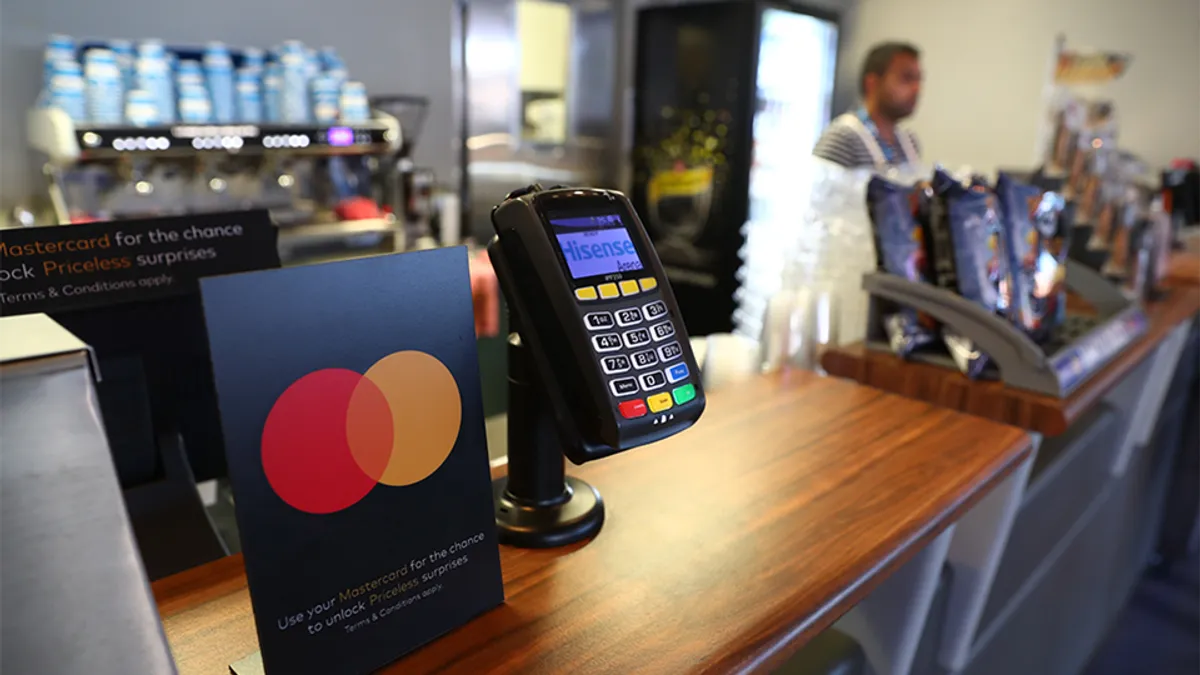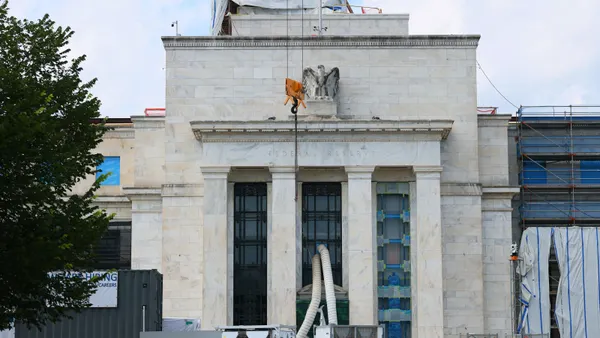Mastercard Chief Executive Michael Miebach received $16.1 million in total compensation for 2021, giving him a 75% boost over his $9.22 million pay package in 2020 before he became CEO, according to the company's proxy statement.
It was Miebach's first year in the top job last year after he succeeded Ajay Banga who held the CEO position for about a decade. Miebach was appointed Mastercard’s president in March 2020 and prior to that he had been the company's chief product officer. He became CEO of the second-largest credit card company on January 1, 2021.
Mastercard paid Miebach a salary of $1 million in 2021, along with a stock award valued at $9.62 million and an options grant worth $2.3 million, according to the company’s proxy statement. He also received $2.97 million in “non-equity incentive plan compensation” and $222,132 in other compensation.
The company said it aims to align the interests of its senior executive with shareholders. “The majority of the compensation of our CEO and other NEOs (named executive officers) is variable and at-risk and tied to pre-established goals linked to financial, strategic and cultural objectives designed to create long-term stockholder value and drive our objectives to grow, diversify and build our business,” the proxy says.
Banga retired from his role as as non-executive chairman at Mastercard on Dec. 31, 2021. The board asked Banga to serve as a consultant to Mastercard for the remainder of 2022 for $3 million in compensation plus “reasonable expenses,” the proxy said.
“The Board determined that the protracted length of the pandemic had continued to adversely restrict executives’ ability to transition important stakeholder relationships,” the proxy says. “Mr. Banga will continue to transition his relationships with these key clients and influencers around the world to Mr. Miebach through the end of 2022.”
Under Miebach’s leadership, Mastercard reported 20-plus percentage gains in net revenue and net income in 2021, compared to the prior year. The Purchase, New York company also returned $7.6 billion to shareholders by repurchasing shares and paying dividends. It generated $9.5 billion in cash flow from operations.
If someone had purchased Mastercard shares when the company went public in May 2006, the value of their investment would have increased 92 times as of Dec. 31, 2021, according to the company's proxy.
The proxy also includes information on shareholder proposals that will be voted on at the company's June 21 annual meeting. One of the proposals calls on Mastercard to produce a report on if and how it can reduce the risk of payments for unspecified “ghost guns,” a shorthand for guns that are difficult to trace. Another proposal asks Mastercard to provide details on its charitable contributions. Mastercard recommended shareholders reject the proposals and provided reasoning for its positions in the proxy.
Other chief executives in the payments sector also got raises this year. American Express paid CEO Stephen Squeri $28.5 million in “total direct compensation” last year, a 39% increase compared with 2020. PayPal CEO Dan Schulman earned $32.1 million for 2021. That’s a 37% increase in total compensation from 2020 even as the digital payments pioneer cut its revenue expectations and abandoned a previous growth goal.













